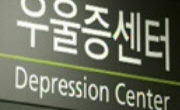The purpose of this study was to examine if insecure attachment served as interpersonal vulnerability of depression and if insecure attachment affected marital functioning of depressed patients. Participants were 31 female outpatients with depression ...
http://chineseinput.net/에서 pinyin(병음)방식으로 중국어를 변환할 수 있습니다.
변환된 중국어를 복사하여 사용하시면 됩니다.
- 中文 을 입력하시려면 zhongwen을 입력하시고 space를누르시면됩니다.
- 北京 을 입력하시려면 beijing을 입력하시고 space를 누르시면 됩니다.
https://www.riss.kr/link?id=A104130884
-
저자
권정혜 (고려대학교 심리학과)
- 발행기관
- 학술지명
- 권호사항
-
발행연도
2002
-
작성언어
Korean
-
주제어
우울증 ; 애착 ; 부부관계 ; 역기능적 태도 ; depression ; attachment ; marital relationships ; dysfunctional attitude
-
등재정보
KCI등재
-
자료형태
학술저널
- 발행기관 URL
-
수록면
595-607(13쪽)
-
KCI 피인용횟수
23
- DOI식별코드
- 제공처
- 소장기관
-
0
상세조회 -
0
다운로드
부가정보
다국어 초록 (Multilingual Abstract)

The purpose of this study was to examine if insecure attachment served as interpersonal vulnerability of depression and if insecure attachment affected marital functioning of depressed patients. Participants were 31 female outpatients with depression (depression group) and 32 normal women(control group). They were assessed on the measure of depression, subjective marital satisfaction, marital relationships, attachment style and general dysfunctional attitude. Specifically, interview technique was used to evaluate marital relationship and attachment style. Results indicated that insecure attachment style was significantly more prevalent in the depression group than in the control group. Among aspects of insecure attachment, depressed patients showed a higher level of the desire for engagement and anger in relationships than women in the control group. Subjective marital satisfaction, confiding in husband, quality of positive interaction with husband and security characteristics of marriage were lower in the depression group than in the control group, and the quality of negative interaction with husband was higher in the depression group than in the control group. Achievement-oriented and dependency-oriented dysfunctional attitude were higher among depressed patients than among women in the control group. Within the depression group, patients with secure attachment and those with insecure attachment group were compared. There was a significant difference in the subjective marital relationship between two groups, and active emotional support by husband tended to be lower in the insecure attachment group than in the secure attachment group. Achievement-oriented dysfunctional attitude tended to be higher among patients with insecure attachment group than those with secure attachment. Implications and limitations of this study were discussed.
동일학술지(권/호) 다른 논문
-
아동 청소년의 얼굴표정을 통한 정서인식능력과 심리 사회적 적응의 관계
- 한국임상심리학회
- 오경자
- 2002
- KCI등재
-
버스사고 피해자의 심리적 특성 및 외상후 스트레스 장애 발병 관련 변인
- 한국임상심리학회
- 이선미
- 2002
- KCI등재
-
- 한국임상심리학회
- 오경자
- 2002
- KCI등재
-
인터넷 사용조절 프로그램의 개발 및 효과검증을 위한 연구
- 한국임상심리학회
- 권희경
- 2002
- KCI등재
분석정보
인용정보 인용지수 설명보기
학술지 이력
| 연월일 | 이력구분 | 이력상세 | 등재구분 |
|---|---|---|---|
| 2026 | 평가예정 | 재인증평가 신청대상 (재인증) | |
| 2020-01-01 | 평가 | 등재학술지 유지 (재인증) |  |
| 2017-01-01 | 평가 | 등재학술지 유지 (계속평가) |  |
| 2016-03-22 | 학술지명변경 | 한글명 : 한국심리학회지 임상 -> Korean Journal of Clinical Psychology |  |
| 2016-02-16 | 학술지명변경 | 외국어명 : The Korean Journal of Clinical Psychology -> Korean Journal of Clinical Psychology |  |
| 2014-04-10 | 학회명변경 | 영문명 : The Korean Society Of Clinical Psychology -> Korean Clinical Psychology Association |  |
| 2013-01-01 | 평가 | 등재학술지 유지 (등재유지) |  |
| 2010-01-01 | 평가 | 등재학술지 유지 (등재유지) |  |
| 2008-01-01 | 평가 | 등재학술지 유지 (등재유지) |  |
| 2006-01-01 | 평가 | 등재학술지 유지 (등재유지) |  |
| 2005-01-27 | 학회명변경 | 한글명 : 한국심리학회 산하 임상심리학회 -> 한국임상심리학회 |  |
| 2004-01-01 | 평가 | 등재학술지 유지 (등재유지) |  |
| 2001-01-01 | 평가 | 등재학술지 선정 (등재후보2차) |  |
| 1998-01-01 | 평가 | 등재후보학술지 선정 (신규평가) |  |
학술지 인용정보
| 기준연도 | WOS-KCI 통합IF(2년) | KCIF(2년) | KCIF(3년) |
|---|---|---|---|
| 2016 | 1.36 | 1.36 | 1.6 |
| KCIF(4년) | KCIF(5년) | 중심성지수(3년) | 즉시성지수 |
| 1.69 | 1.77 | 2.966 | 0.3 |




 KCI
KCI







